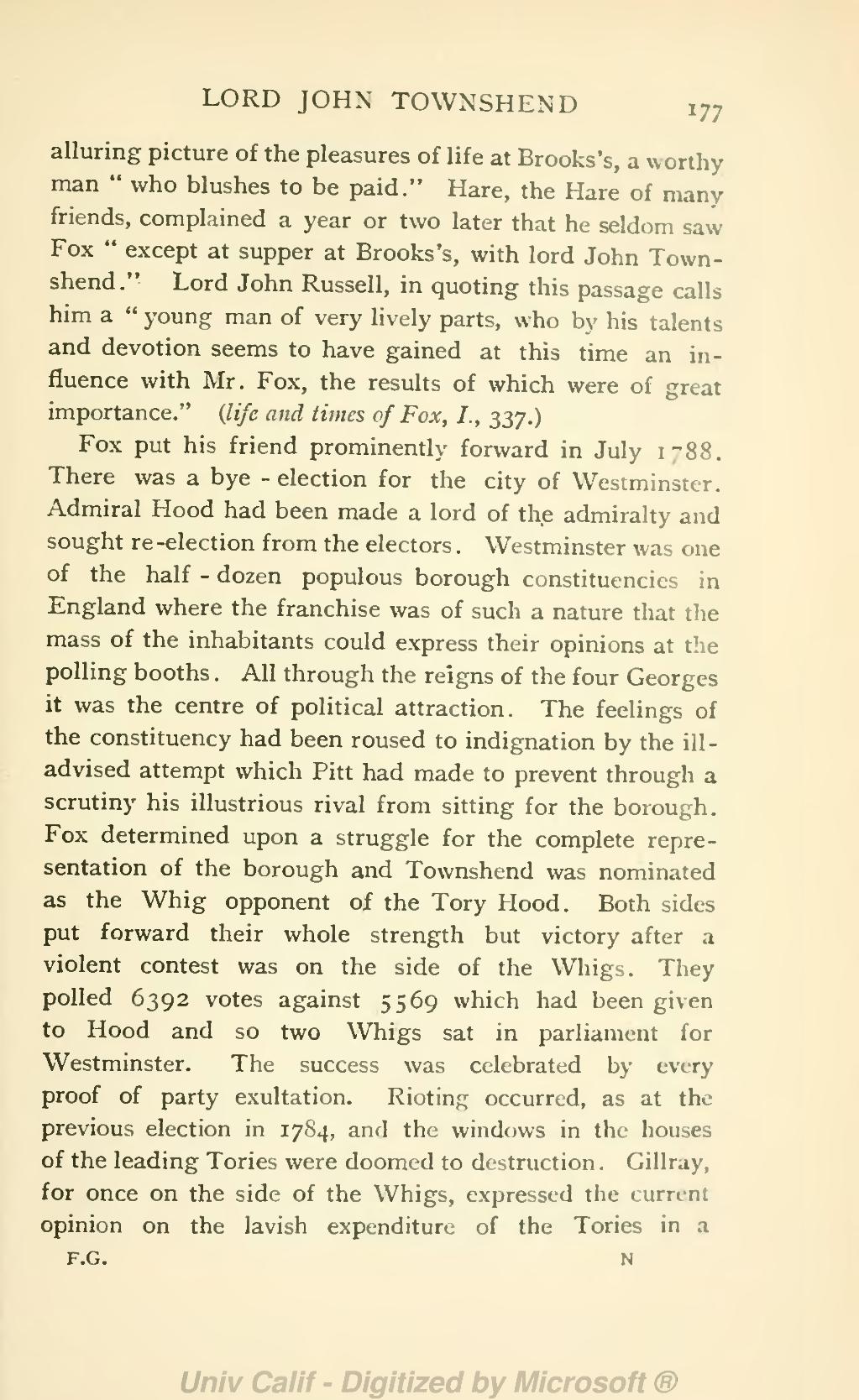alluring picture of the pleasures of life at Brooks's, a worthy man "who blushes to be paid." Hare, the Hare of many friends, complained a year or two later that he seldom saw Fox "except at supper at Brooks's, with lord John Townshend." Lord John Russell, in quoting this passage calls him a "young man of very lively parts, who by his talents and devotion seems to have gained at this time an influence with Mr. Fox, the results of which were of great importance." (life and times of Fox, I., 337.) Fox put his friend prominently forward in July 1788. There was a bye-election for the city of Westminster. Admiral Hood had been made a lord of the admiralty and sought re-election from the electors. Westminster was one of the half-dozen populous borough constituencies in England where the franchise was of such a nature that the mass of the inhabitants could express their opinions at the polling booths . All through the reigns of the four Georges it was the centre of political attraction. The feelings of the constituency had been roused to indignation by the ill-advised attempt which Pitt had made to prevent through a scrutiny his illustrious rival from sitting for the borough. Fox determined upon a struggle for the complete representation of the borough and Townshend was nominated as the Whig opponent of the Tory Hood. Both sides put forward their whole strength but victory after a violent contest was on the side of the Whigs. They polled 6392 votes against 5569 which had been given to Hood and so two Whigs sat in parliament for Westminster. The success was celebrated by every proof of party exultation. Rioting occurred, as at the previous election in 1784, and the windows in the houses of the leading Tories were doomed to destruction. Gillray, for once on the side of the Whigs, expressed the current opinion on the lavish expenditure of the Tories in a
Page:Eight Friends of the Great - WP Courtney.djvu/197
LORD JOHN TOWNSHEND
177
